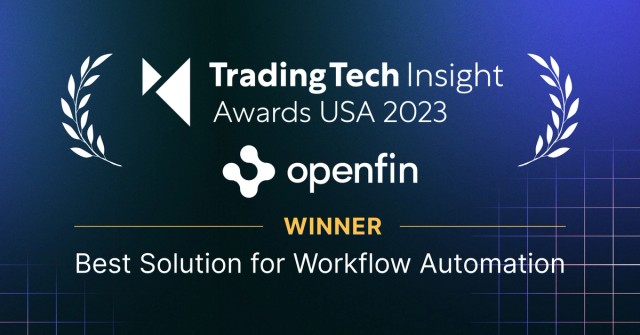September 22, 2020
OpenFin 17 Introduces New Features and Co-Stability with Chromium and Electron

At OpenFin, we understand that even the most transformative solutions can always be improved – helping clients take their powerful applications and rebuild them to be easier to deploy, more secure and more user-friendly is our bread and butter. In that spirit, we are pleased to announce the launch of OpenFin 17. Our latest major runtime release offers all the functionality our clients have become used to with a number of new features and enhancements that help make it easier than ever for financial services firms to achieve digital transformation.
OpenFin 17 is primarily focused on delivering the latest features and performance of Chromium 85 and Electron 10, but also contains the latest update to the OpenFin core API v53 (17.85.53.10). Chromium 85 includes two notable changes: TLS Certificates valid for 1 year and Same Site Cookie enforcement resumes. OpenFin includes additional controls around how Views are managed within the Platform API as well as extending core System APIs to be Platform API-aware.
One of the key features of the last several versions of OpenFin has been co-stability with Electron and Chromium. By building with us, financial services firms can ensure that their applications are always running on the latest, greatest and most secure browser engine, leading to numerous benefits around performance and stability. For one thing, this co-stability enables our clients to build apps that are as secure as possible – an important consideration for any company, but especially for capital markets firms that routinely move millions of dollars in securities. This ability to conform to the latest version is crucial because Chromium does not backport security fixes. Any vulnerabilities are fixed only in the next version. Co-stability means we are getting these security fixes and enhancements into our customers’ hands at the same time they are available in the consumer web.
This is just one part of how strategies have shifted to be more aligned with modern browsers. Another aspect is compatibility with the vast resources that developers have at their disposal. Libraries and tools developed and matured by Facebook, Google, Microsoft and the like are tested with evergreen platforms in mind. Alignment with the “true web” means your firm is benefitting from the pace and scale of the consumer web. This is all part of a growing expectation that apps will be built for an evergreen world – rather than writing them once and letting them languish, there is a need to maintain them as the web continues to move forward. What we are doing is making it easy for busy technology teams to thrive in this environment. With OpenFin 17, all the improvements from the latest versions of Electron and Chromium come to client applications with little additional investment.
Building modern desktops requires a modern approach to versioning, and that’s exactly what we are offering with co-stability. Our approach means OpenFin customers never have to worry about how an app is distributed, how secure it is or whether it will be able to accommodate the latest browser features – they can simply focus on what they do best, which is building solutions. OpenFin 17 is our latest step toward enabling industry-wide digital transformation.
Enjoyed this post? Share it!
Related Posts
All Posts ->
Featured
We’re changing our name to Here™
Press

Featured
From Fragmentation to Automation: How OpenFin Workspace Has Catalyzed Digital Transformation for the Desktop
Press